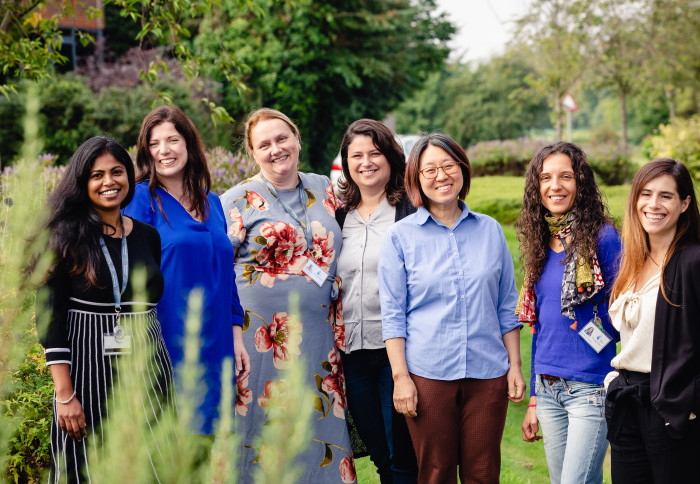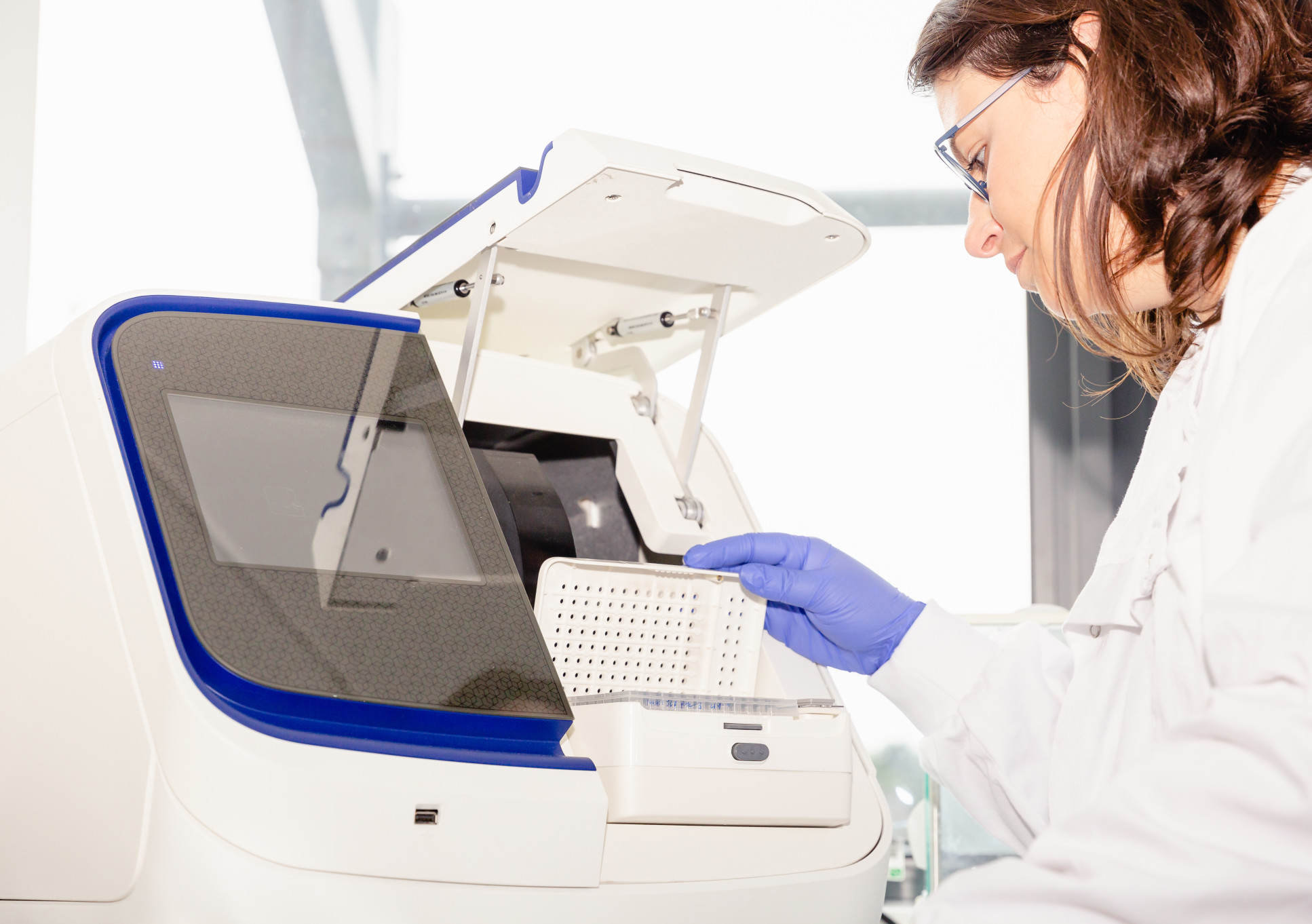FA Bio's unique soil diagnostic tools target sustainable farming solutions
by Gavin Reed

FA Bio's team, including Co- founders Dr Angela De Manzanos Guinot (right) and Dr Kerry O'Donnelly Weaver (second from left)
Imperial startup FA Bio has made substantial technical and commercial progress following a seed investment in 2021 and has rebranded from FungiAlert.
The company was founded to develop the tools that enable early detection of soil pathogens and provide growers with soil microbial analysis to support sustainable agriculture. The rebrand to FA Bio was announced following substantial technological and commercial development. The company is shifting its focus from detecting and identifying specific pathogens using their unique diagnostic tools to analysing the unique microbial content of soil and discovering sustainable farming solutions.
FA Bio (formerly FungiAlert) was founded in 2015 by Imperial PhD alumnae Dr Angela De Manzanos Guinot and Dr Kerry O’Donnelly Weaver to develop tools to provide an early warning to farmers about the presence of threatening pathogens. After winning a series of entrepreneurial programmes, its technology was patented and the co-founders went full time after completing their PhD studies.
Following an investment from Sussex Place Ventures and Dr Paul Atherton, a leading British serial entrepreneur and Imperial alumnus, the company moved to the world-leading Rothhamsted Research Centre and began commercialising its SporSenz technology.
The company raised seed investment in 2021 and has grown to a team of 9
Sensing soil
FA Bio has deployed its SporSenZ soil microbial analysis tool in 30 countries across Europe, Africa and the Americas. Over 2,500 kits have been used by crop growers, with the resulting data providing high quality data and microbial isolates from agricultural fields.
SporSenZ kits are provided to growers of a wide range of food crops, with the aim of analysing not only the unique microbial content of soil in different locations, but also the relationship between microbes and crops.
Natural enhancement
Customer engagement has shown FA Bio that crop growers are interested in understanding the microbial activity in their soil holistically, rather than focusing on individual pathogens. Modern farming techniques often seek to control the microbial environment of soil, but there are few sustainable or affordable tools in this space. This leads to the use of agrochemicals such as fertilisers and fungicides, which can cause damage to the natural environment. One example is the damage to rivers from the run-off of agrochemicals due to poor absorption of phosphorous fertilisers by many crops.
“Our natural ecosystems face many threats, and one of those is the environmental damage caused by some agrochemicals. Currently, 2.5% of the global greenhouse gas emissions come directly from synthetic fertilisers and a huge 75% of the global nitrous oxide emission are related to agriculture. We believe that by enhancing our understanding of soil and its microbiota, we can identify and develop revolutionary bioproducts that can replace or enhance agrochemicals, minimising soil degradation whilst also improving crop yields to guarantee food security.” said Dr Angela De Manzanos Guinot, CEO of FA Bio.
In order to achieve its mission, FA Bio is composed of two underlying elements, FA BioLab and FA BioAg, each with different but complementary functions. FA BioLab focuses on the studying of soil microbial communities to collect crop targeted microbial libraries. FA BioAg focuses on identifying and investigating the biotechnological potential of soil microbes to be developed into superior bio-products (biofungicides and biofertilisers) for agriculture.

FA Bio and Imperial College London
Following its formation at Imperial in 2015, FA Bio achieved rapid early success, winning Imperial’s flagship accelerator programme, the Venture Catalyst Challenge in the same year. Also in 2015, FA Bio were finalists in WE Innovate and won the CDT Den competition, after which its pathogen-sensing technology was patented.
In addition to their successful participation in entrepreneurship programmes, FA Bio’s co-founder have acted as peer mentors for WE Innovate and the Imperial Venture Mentoring Service (IVMS), providing insights and support to the new generation of Imperial entrepreneurs.
"We are extremely grateful to Imperial Enterprise, not only for the opportunities they have provided to enhance the visibility of our value proposition but, for also inviting me to be a peer mentor of WE Innovate. Being a peer mentor exposes me to great new ideas and enthusiastic students, which I find truly inspiring. I am proud to have the opportunity to give back and encourage other young female founders to embrace the entrepreneur journey." said Dr Angela De Manzanos Guinot, CEO of FA Bio.
Article text (excluding photos or graphics) © Imperial College London.
Photos and graphics subject to third party copyright used with permission or © Imperial College London.
Reporter
Gavin Reed
Enterprise